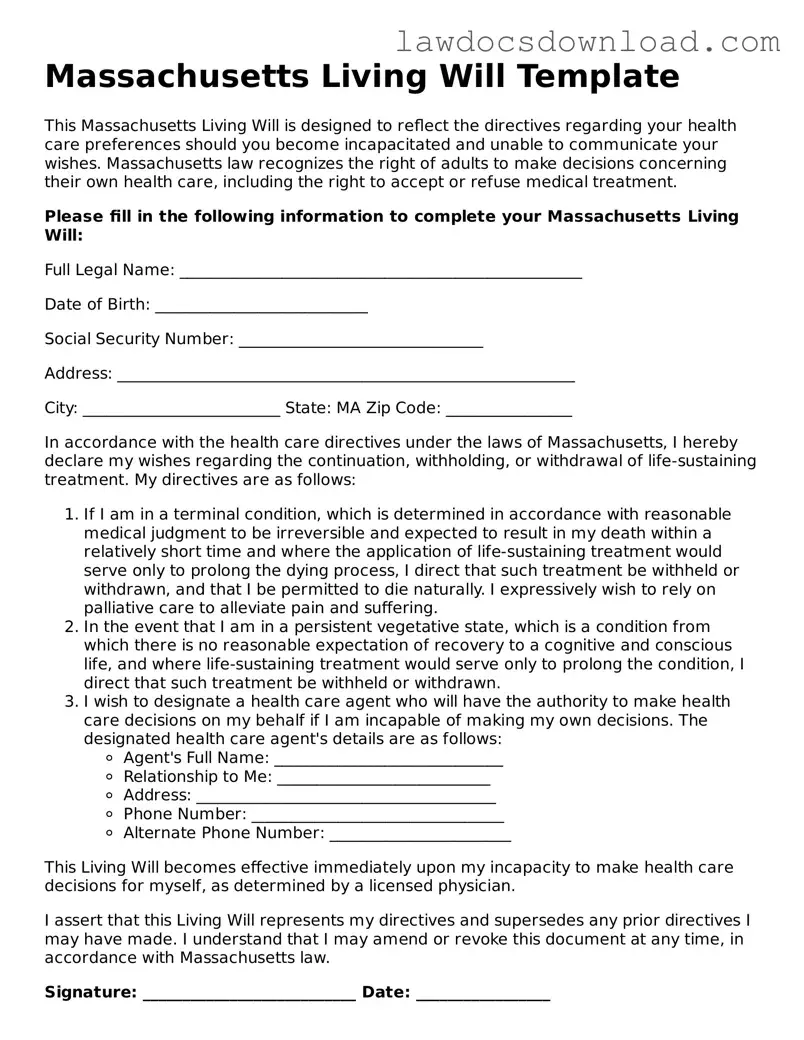Massachusetts Living Will Template
This Massachusetts Living Will is designed to reflect the directives regarding your health care preferences should you become incapacitated and unable to communicate your wishes. Massachusetts law recognizes the right of adults to make decisions concerning their own health care, including the right to accept or refuse medical treatment.
Please fill in the following information to complete your Massachusetts Living Will:
Full Legal Name: ___________________________________________________
Date of Birth: ___________________________
Social Security Number: _______________________________
Address: __________________________________________________________
City: _________________________ State: MA Zip Code: ________________
In accordance with the health care directives under the laws of Massachusetts, I hereby declare my wishes regarding the continuation, withholding, or withdrawal of life-sustaining treatment. My directives are as follows:
- If I am in a terminal condition, which is determined in accordance with reasonable medical judgment to be irreversible and expected to result in my death within a relatively short time and where the application of life-sustaining treatment would serve only to prolong the dying process, I direct that such treatment be withheld or withdrawn, and that I be permitted to die naturally. I expressively wish to rely on palliative care to alleviate pain and suffering.
- In the event that I am in a persistent vegetative state, which is a condition from which there is no reasonable expectation of recovery to a cognitive and conscious life, and where life-sustaining treatment would serve only to prolong the condition, I direct that such treatment be withheld or withdrawn.
- I wish to designate a health care agent who will have the authority to make health care decisions on my behalf if I am incapable of making my own decisions. The designated health care agent's details are as follows:
- Agent's Full Name: _____________________________
- Relationship to Me: ___________________________
- Address: ______________________________________
- Phone Number: ________________________________
- Alternate Phone Number: _______________________
This Living Will becomes effective immediately upon my incapacity to make health care decisions for myself, as determined by a licensed physician.
I assert that this Living Will represents my directives and supersedes any prior directives I may have made. I understand that I may amend or revoke this document at any time, in accordance with Massachusetts law.
Signature: ___________________________ Date: _________________
Witness 1 Signature: ___________________________ Date: _________________
Witness 1 Printed Name: ____________________________________________
Witness 2 Signature: ___________________________ Date: _________________
Witness 2 Printed Name: ____________________________________________
This document is signed in the presence of two witnesses, neither of whom is a spouse, a blood relative, nor a beneficiary of my estate, in compliance with the laws of the Commonwealth of Massachusetts.

